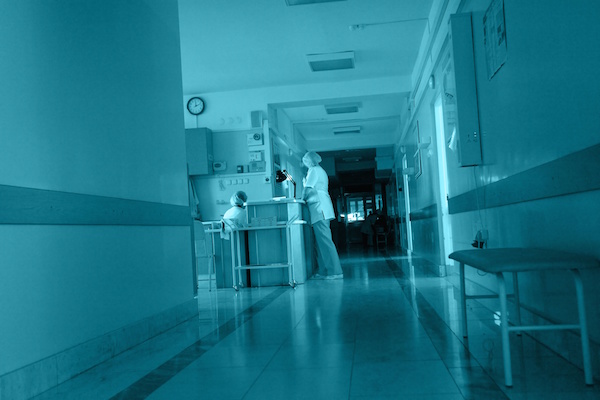
TUESDAY, Nov. 20 (HealthDay News) — Routine checkups don’t help reduce a patient’s risk of dying from either heart disease or cancer, new Danish research suggests.
The finding applies to doctor visits among the general population, in which seemingly healthy patients, without any specific disease risk, come in on a regular basis for an array of standardized screenings and lifestyle counseling.
The goal of such checkups is to catch early signs of disease and thereby reduce the risk for early death.
But the fresh review of 14 previous studies involving nearly 183,000 patients uncovered no evidence that such checkups do anything of the sort. On the contrary, the research team found that routine checkups of healthy people may actually promote the use of potentially harmful invasive testing while at the same time leading to overdiagnosis and unnecessary treatment.
“We could not find evidence of benefit from adding systematic, regular health checks to ordinary preventive health care practice, despite having data from many trials of high quality that included almost 200,000 people,” said study lead author Lasse Krogsboll, a doctoral candidate in the Nordic Cochrane Centre, in Copenhagen.
Krogsboll added, however, that part of the lack of notable checkup benefit might be due to prevention interventions having already been carried out by primary care physicians outside the checkup context among at-risk patients who they had already been seeing for other reasons throughout the year.
“[So] our results should not be interpreted as evidence against preventive actions to improve health in general,” he said, “or evidence against clinicians trying to identify health problems early and treat risk factors in high-risk groups.”
Krogsboll pointed out that “we are not saying that early treatment of manifest disease or treatment of risk factors identified as a part of good doctoring is not a good idea. For example, treatment of moderately or severely elevated blood pressure is well documented to be beneficial.”
But, he added, “we cannot take it for granted that more diagnoses and more treatment is always better. Our results do not tell us what the optimal prevention strategy is, but they certainly do not support the idea of regular, systematic health checkups in addition to normal clinical practice.”
Krogsboll and colleagues reported their findings in the Nov. 20 edition of the BMJ.
The studies selected for review dated as far back as 1947 and as recently as 2010. All of the participants were at least 18 years old, but no study was included in the review if it focused exclusively on seniors aged 65 and up.
All checkups had taken place in either a primary care or community care setting; none had occurred in a hospital clinic context.
Most studies included in the current review had been conducted in the United Kingdom and continental Europe, while some had taken place in the United States. Follow-up on patient deaths ranged from as low as four years to as much as 22 years after studies began.
The results: Checkups did lead to an uptick in overall diagnoses, as well as a specific increase in treatment for high blood pressure. However, such routine visits were not linked to any reduction in overall mortality or the risk of dying from cardiovascular illness or cancer.
The research team suggested another problem: Patients who decide on their own to go in for a routine physical may not actually be the sort — such as those who haven’t seen a doctor in a while — who would most benefit from a checkup.
But just how broadly should the findings be interpreted?
“I do think that the results are applicable to America,” Krogsboll said, pointing out that one study, in particular, had been conducted among Kaiser Permanente health plan members. However, he acknowledged that what exactly constitutes “optimal” preventive care is a matter of ongoing debate. He noted that the kind of care provided in some of the older European-based studies may not closely stack up against the current checkup protocols commonly practiced in the United States today.
In an accompanying editorial, Dr. Domhnall MacAuley, the London-based clinical primary care editor for BMJ, alluded to some unintended consequences that can stem from ineffective checkups.
“The potential downsides,” MacAuley said, “are that those who come [in for a checkup] tend to be the ‘worried well,’ who may bear a high risk for being diagnosed with false positives or negatives. Indeed, [the study authors] suggested that there was overdiagnosis — that routine checks tend to pick up conditions that were treated with no obvious benefit in terms of [illness] or mortality.”
In his published commentary, MacAuley concluded that “policy should be based on evidence of well-being, rather than on well-meant good intentions” and rejects the notion that checkups for a healthy public are a good idea simply because “they seem a socially responsible approach to caring for patients.”
That said, he suggests that “targeted” checkups may be the alternate way to go, by focusing on those patients who have already been identified as having risk factors or conditions that could benefit from routine monitoring.
More information
For more on recommended cancer screenings, visit the American Cancer Society. For more on cardiovascular disease prevention, visit the American Heart Association.

